Surfing in the Dark: An interview with Chris Heazlewood
Chris Heazlewood is what’s known in music circles as ‘a lifer’ – someone who’s committed himself to making music on the fringes despite the obstacles and difficulties. Chris is a unique talent, renowned for his solo work, as Cash Guitar, and with the mighty and turbulent, King Loser. A documentary, ‘King Loser – You Cannot KIll What Does Not Live’, is going to be released sometime on the band’s final tour in 2016, a typically hell-raising and hair-raising series of events.
Two of Chris’s great accomplices and fellow-travellers in music were Celia Mancini and Peter Gutteridge. Chris spoke to Richard Langston about his departed friends and his 30 years in music.
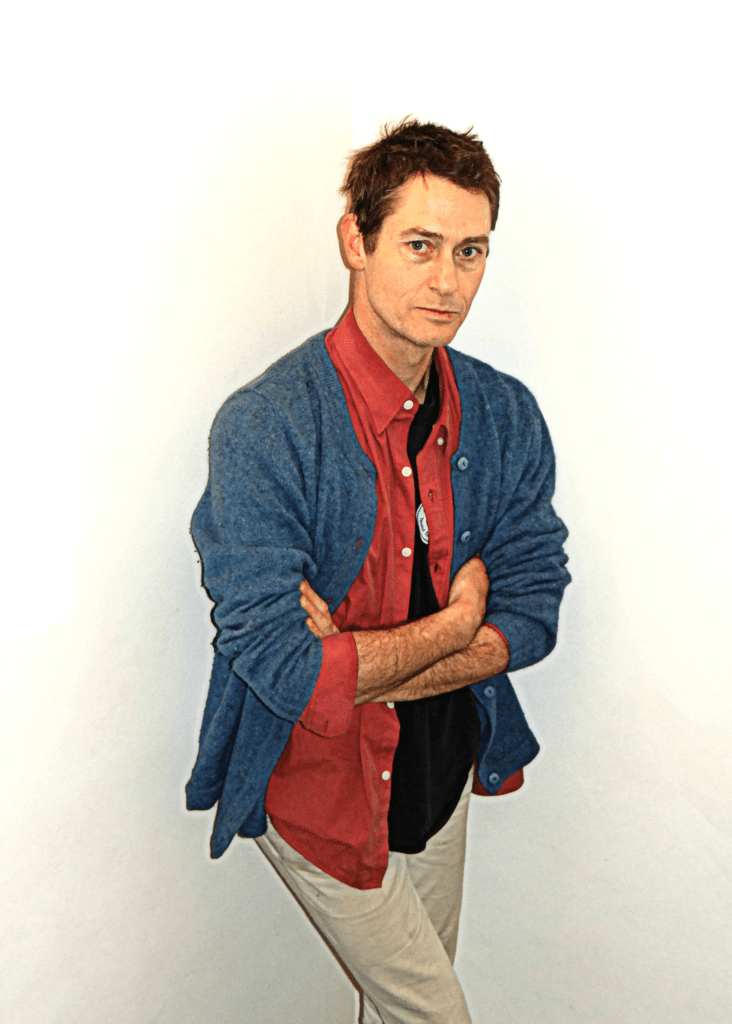
What do you think people will make of the doco?
I’ve only seen snippets but I think it will be uncomfortable (viewing). We’ve given Andrew (Moore the documentary maker) free licence and it’s kind of risky. He could edit it any old way he wants.
But he loves the band.
Yeah yeah.
He said to me if I caught 30 percent of the craziness it’d still be a great doco.
Yeah there was some extreme behaviour and obviously the four of us are all anti-authoritarian, don’t give a stuff for people in uniforms or especially people telling you what to do and what you can’t do. They become targets, people to roll out of the way.
I’ve only seen snippets but there’s a fair bit of arguing within the band.
Yeah.
There’s Celia and you calling each other c..ts.
Yeah, that’s right. I’ve known her for 30 years (I still talk about her in the present tense); with big personalities you’ve got to go big too. If you’re a quiet person in that stuff you’d get lost. There are no quiet people in the King Loser whānau (laughs). We’re all difficult characters.
How did you meet Celia and why were you attracted to her??
That chap Glen (Campbell) from S.P.U.D he rang me out for some reason. I said yes to doing some music with them in 1992. I didn’t think much of it, didn’t think he’d really get anything happening, but yeah I’ll play some guitar for yah. Then he rang me up at 1:00 a.m. in the morning and he got me round to meet these two people and it was Pat Faigan (aka Duane Zarakov) and Celia and she was just back from America and he had just shifted from Christchurch to Auckland.
They were best friends really tight, obviously he had a big crush on her cos she was a powerful driven woman. And when I met them we talked about music a lot and they were into exactly the same music as I was, Velvet Underground, Suicide, The Stooges, The Saints, Dick Dale, The Ventures, Sergio Mendes. It was like bang bang bang, oh wow! Instant best friends (laughs). And of course she’s a good looking woman and she certainly put that out there. She’s got her rack out, the big guns are out (laughs).
How old were you at this time?
I was 26, very naïve, I’d only been in Auckland a year and a half. I was working two jobs Foundation For the Blind administrator in the daytime and night time I had a data entry job with ACC. I’d finish work in Parnell for the blind, hop in my car drive straight to Panmure, get some fish’n’chips, and go to the ACC at 10 pm every day of the week.
I don’t associate you with nine to five jobs. I just didn’t think you had them.
I did then. I don’t now. I have a 16-track recording studio in the front room and I spend all my money on living and if I want other recreational pursuits you factor them in and make allowances so that you can afford them.
You’re living close to the bone, not much to come and go on…
I like that. I mean when I was in Auckland in 2018 on tour with the girls (Tony Hall and Connie Benson) as Cash Guitar we were going to a couple of areas behind K Road and there was a little alleyway, basically we used to sleep on the street and under these bridges and in these parks and hang out with these dudes sitting on the cardboard because these people were actually all right, these are the salt of the earth as opposed to the people on Lambton Quay who walk straight past those homeless people.
That’s a hard life Chris… that life…
No, it isn’t. That’s where the soul of life is, Hamish Kilgour, he’s in that place and Peter Gutteridge was every day. You just wake up and you’re there with humanity, you’re not going to waste it with a white collar job, you’re going to go out and bleed for the people, play some music, drag them along. C’mon!! c’mon!!
I think it takes courage to live that sort of life.
It can be touch and go yeah, but I’ve been doing it for long enough. The worst thing that will happen to you is that you’ll be humiliated. Money can be a bit tight (laughs).
When I first met back in the mid-1980 you’d come to work at the Otago Daily Times as a reporter…
I would’ve been 20.
And you seemed the sweetest guy…
But I’d already been working at the freezing works at Burnside for six years, brought up in that brutal masculine culture, very aggressive. You’ve got to stand up for yourself, all that testosterone. I had learned those things which didn’t sit well in the editorial room.
But you didn’t strike me as aggressive. Were you?
No, no. I worked with that chap, that tall beanpole who was also a cadet. I can’t remember his name. He was shy and soft, and I always thought you’ve grown up inside a flower or something, you’ve been cotton-wooled. I always felt quite hard beside him but yeah I was still pretty naïve. But even when I met you I’d been arrested a couple of times.
What for?
Drunk and disorderly behaviour, resisting arrest, obscene language, stealing alcohol.
Why did you want to become a reporter?
I’ve always wanted to write. I was brought up in books. I used to proofread my parents’ letters, do my Dad’s tax returns. My brain just wouldn’t stop. I was hungry for knowledge; that’s why I wanted to become a reporter. I had that glossy idea. I didn’t envisage sitting in the district court or ringing the fire department and the ambulance people every couple of hours. I lasted two years. I resigned because I started to take too many days off. I got sick of it. That whole row of editorial offices were all ex-OHBS (Otago Boys High School) and that’s where I’d come from as well and I thought I’d probably got the job because I’d been to OBHS and I didn’t like that thought.
Were you obsessed with music then?
Yeah I’d snuck into The Cook to see Toy Love, I’d climbed the wall and got in the fire exit. I’d seen Bored Games at the Concert Chambers. I used to go to Pandora’s Box down on the wharf to see The Clean. I went to Coronation Hall.
What impression did they make…
It was just sort of this big noise. It was more the feeling of it. I can’t actually remember the specifics of it, just wow!!! I think my brain was still forming, y’know. I remember more about The Stones, and thinking I love this sort of thing, they were more kind of snide whereas The Clean were all racket. The Stones had that sort of more beat vibe and the sneer was more obvious…we don’t really want to be here but we’re going to do it anyway. I was fascinated by that, the attitude.
What were you listening to at that time do you remember?
It would’ve been Joy Division..
Hang on, sorry, when did you start playing?
I started playing when I was 18, I bought a guitar off Wayne Elsey, his double cutaway Gibson ES355 Epiphone. I was living with Tony Dooley, Mike Dooley’s (drummer in The Enemy & Toy Love) brother and of course Toy Love was pretty huge and I was going to Roy’s (Colbert, owner of Records Records) every day after school on the way down from school to catch the bus home. I’d flick through the bins. Joy Division, Magazine, The Saints. But the first music I was into was stuff on 4ZB – Neil Diamond, The Animals, 96 Tears (by ? and The Mysterians). The Kinks. All that stuff.
Did you talk to Roy?
No, he was always quite daunting. I was quite shy and I was always very nervous cos I’d go in there and maybe see some people who’d been in the bands. Some friends of mine had a band.They had shared rooms with Sneaky Feelings above Whitcoulls by The Exchange. You’d walk up these smelly old stairs into this room where there was all these musical instruments. I’d sit in the corner drinking Speights and watch them practice. I was about 15 or 16.
At school I’d hang out with Alistair Galbraith. He was in my class and I’d go and watch The Rip practice. I was just fascinated, still couldn’t play the guitar though. And then I got one and I shifted out of home, I was like 17 or 18 and I got a flat. My first flat was at 475 Great King Street – Toad Works. Shayne Carter would walk past and yell out ‘Doublehappys clone!” cos he heard me playing the guitar. I always remember that. He couldn’t see me – he didn’t know who it was – he just heard that guitar (the one Chris had bought from Wayne Elsey). I always remember that (laughs).
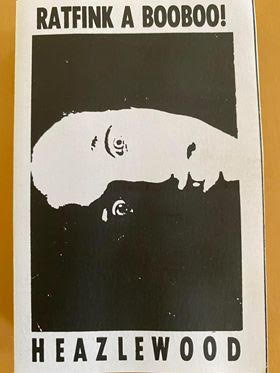
Was the cassette Ratfink A Booboo the first thing you did?
Yeah yeah. That was 1988, I got a warehouse in lower High Street, this massive triangular room, and I lived there by myself. I got this Tascam PortaStudio and I started multitracking which was a great revelation, sound on sound, which blew my mind. And of course there was all of that music around, the second wave of bands, Love in a Gas Oven, Look Blue Go Purple, Snapper, The Puddle. Straitjacket Fits were starting to play at Chippendale House, Dead C were cranking up.
I sold enough copies of the cassette to shift to Auckland – ninety copies at ten dollars each or something. Sean O’Reilly (who played on the cassette) had written me a letter saying …’Come to Auckland, you owe me ten dollars you bastard’. I played in a band (Olla) with Lesley Paris (Look Blue Go Purple), we’d been a band called Buster in Dunedin with Norma O’Malley (LBGP), Sean and I and Lesley. That was good fun, I enjoyed hanging with those guys.
In Auckland there were lots of jobs. Work was easy. I got a job, got a car, got a flat with Sean O’Reilly. We drank a lot of piss and it was only then I realized that the South Island drinking culture was quite out of control because I didn’t see anyone else drinking a bottle of vodka in the hallway at the parties. But that’s what Sean and I would do. People were sort of stand-offish with us, they sort of had this reverence for musicians from Dunedin even then, ‘oh, he’s from Dunedin, he’s got the black polo neck on’. We thought it was hilarious.
Then you were in King Loser with Celia. What it was about her that inspired you?
She was completely irrepressible and didn’t recognize barriers which I was just gobsmacked by because I was a shy person and grew up never wanting to piss people off. But here was this person giving me permission to be free. It was really liberating and when I got into a practice room with her and Duane (Zarakov) they gave me lots of confidence because they would say, “oh my god …that’s incredible…you’re so great…”.
Y’know Sean and Leslie were with my friends but they didn’t really do that stuff, overt compliments. I understand that, we’re from Dunedin, you don’t want to get too carried away (laughs). Meeting Celia enabled me to unlock part of myself which had been hidden.
Would we loosely label that as your wilder and darker side?
Yeah yeah, definitely.
What is it about surf music that you love?
That’s the peak of it; there’s rock music that has all those forms, but then there’s surf music which is a whole lot more elemental. They’re using the form but then there’s this bluster over the top, y’know dick-a-dick-a-dick-a-dick-a-dick and it has this sort of subliminal quality. It’s got a lull to it but it’s also intense.
Hamish Kilgour thought at one point The Clean were going to be a surf band…
That’s the aspect of The Clean that I really love. ‘Fish, ‘At the Bottom’ “Point That Thing…’. Those parts; they’re powerful, not so much songs, the sonic aspect.
Can you explain your love of dissonance and noise?
Well…melody…it’s all very well to have this pleasing sort of pattern but then the discordance pulls you in another direction. It’s like shifting something underneath it, it’s more interesting, that’s why we don’t photograph things in the middle, we put them to the side. The principle of thirds, everything looks slightly better not symmetrical but with some asymmetry. I think that’s especially true with sounds, if you put other textures in there against something clean and deep and put some static in there and make it staccato, you’re building tension.
You’re not like Dead C where you’re out on the edge from the outset…
That’s truly kind of brave stuff but also you got to remember they do practice (laughs). Let’s just put that out there!! They practice improvising but they’ll have a loose form, there’s a form there.
Do you listen to noise?
Yeah, I do, I also listen to a lot of lounge and fuzz music, Ty Seagal, Fuzz, Acid Eater. George (Henderson, of The Puddle & New Existentialists)) played me a great record, an early Philips electronic sampler called Electronica 2000 and it had all these East European composers using synthesizers and musique concrete techniques, found sounds dropped in over synth, and it was very esoteric and out there, there might have been a melody thread running through it but it’s just very interesting. Then he played the piano sort of quite random and I sat down behind him and started playing synth on my phone and it went together so well. It sounded like And Band that sort of plinky plonky, some scrawl, scrap of a melody, some noise. I think once you’ve listened to a lot of melodic music you need more meat in the sandwich, that’s the guts of it.
I heard an interview with Iggy Pop recently in which he said …’I needed to make white delinquent suburban music…’
Yeah because you’re flying a freak flag, that’s your stake of freedom isn’t it. As I said to a friend, ‘the world is run by fat white men in tiny little rooms who are despicable and have awful relationships with most of the world around them, women, other men, and the way they treat people is horrid’. The friend I was talking to is an artist and she was asking about stuff we do. I feel no compunction about being completely outside that; straight lines and boxes. You don’t want to end up there. As Sean O’Reilly once said, just continuing to play music is a political statement in itself, it’s like the two-finger salute.
Speaking of living outside of boxes and straight lines, how did you get to know Peter Gutteridge?
I’d actually first met him in The Exchange (In Dunedin). He’d been to The Savoy and seen Buster. I knew who he was and he stopped me and he said, “I saw you play the other night you were quite good, better than you think’, and that sort of scared me, the scary beaked nose – looking like Catweazle – ’better than you think’ (laughs).
But he was a really sweet guy, and I loved the way he spoke. I loved the sound of his voice. His father was a BBC announcer and had this beautiful mellifluous voice. And Pete was great to hang out with, he had a great sense of humour. He was the cheekiest bugger and he has this thing he does where you’re doing something and he’ll stop and go, ‘Really? Is that right?’ (laughs). I’d call him the sergeant.
And you eventually started playing music with him…
When Celia and I got drafted to play and help out in Snapper she did fine, but I had great difficulty because it was all really simple, but it relied on the texture and I could never get it right. Practice was always at annihilation volume in this tiny room and you just couldn’t hear. But Peter could and he’d be saying ‘stop’, and it’d be like waving a jet airliner down (laughs). He’d come over to my amp and go ‘hang on, what’s happening here?’ He’d look over my guitar set-up – it just took me years to get that right.
There’s stuff that you filmed of you two jamming together in his latter years…
Yeah, I arrived back in Dunedin after I got scraped off the pavement in Auckland and shuttled back. I actually went to my parents for a year and detoxed. I ended up at Pete’s in 2009 or 2010. I remember walking in, and he said, ‘at last a person of quality!’ (Laughs). I thought that was hilarious.
I lived there for a while with him and we played a lot of music and we took a lot of acid and we would cook and he would ask me to stop bringing books into the house and I’m like, “No, nah, I can’t stop”. There were piles of books everywhere and he only had a small house. Pete was just really great to hang out with and he knew a lot of stuff that I didn’t, and he taught me a lot of stuff. Often, I thought it was quite crazy, like he drew these security symbols, these little doodles like circles in crayon with a straight line through them and put them at the front door. I’d say what are you doing Pete, and he’d say, ‘these are security symbols, very ancient’. Really? Like Really? And as it turned out, he’s correct. As I learned later from someone who was doing reiki you go through each grade of reiki, you’re given these sacred symbols. He was really big on that. A lot of times near the end I just feel like it’s kind of his bodyguard because he would go through cycles of mental unwellness and he did end up in Wakari Hospital a couple of times because he did think he was Jesus. I looked out for him; I was used to helping people after being with Celia who also was unwell at times. They also looked after me at times – I’m no stranger to the psych ward.
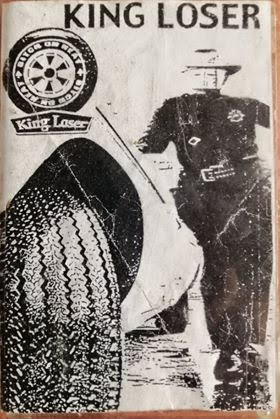
It was probably inevitable your last tour with Celia and King Loser, given your personalities, was going to be volatile?
On the last shows she was really unwell; she’d been knocked off her scooter and she was carrying a head injury. She had pins in her foot, and she had double plasters, she had broken both arms. She was in a lot of pain which I don’t think we fully appreciated because she was such a trooper… ‘righto let’s do it!’. But at the same time, she’s a chemist shop because she’s in a lot of pain. These are strong medications she’s on, they’re opiates. She’s drinking a bottle of vodka or rum starting at 9:00 in the morning.
My relationship with her was quite fraught because she was quite shouty so I would shout back whereas really what I should’ve done was just gone over and given her a hug and I did that a couple of times and it worked magically.
After she died, the compilation, ‘the Celia Mancini tapes’ (2019) came out and showed the fearless approach she had to making music…songs she wrote and performed with King Loser, Snapper, Into the Void, and Stepford 5…
That’s a beautiful album and I Iove that cover, the smoke rising off her cigarette as if it’s going to lift off the cover. It’s a Ronnie Van Hout photo. Beautiful. When I saw it, I cried.
It sums up Celia so well – bar the drug talking, the shouting, here’s this elegant, extremely chic woman at the height of her powers looking in control.
Her ethos runs right through that record even though each song is by a different group of people, and i guess if you weren’t a strong writer or musical presence that might not be the case. She was keen on metal, surf, lounge, krautrock – her tastes were wide-ranging and that‘s why she could turn on a dime musically. She had all these skills – a foot in all the camps. She was a hell-raiser but also a perfectionist and she was often proved right, often to my annoyance. She had great instincts.
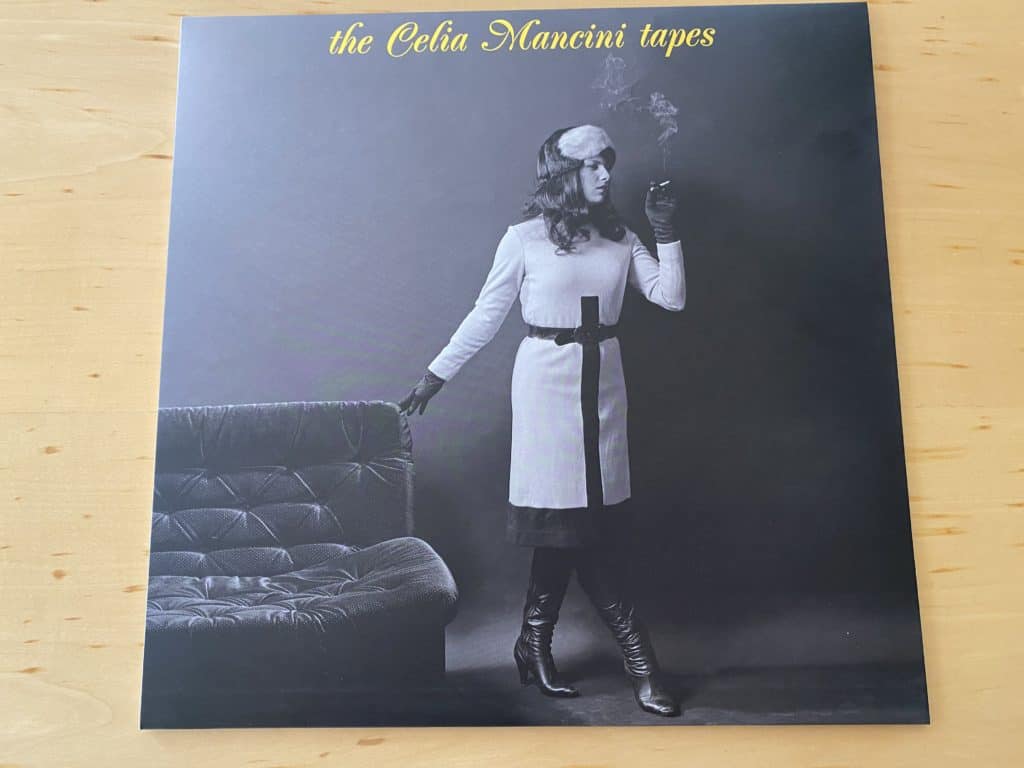
Is there any other King Loser music still in the vaults??
Yeah, there’s the live-to-air recording on Radio One in Dunedin in 1993. We’re keen to get that released on vinyl cos that has some of our best performances, including some great work by the drum-soldier James Kirk. We had a great crowd there in the room with us – Robbie Yeats, Bob Scott, and Paul Cahill and Bruce Blucher (of Trash) – cheering us on. There’s also some instrumentals we’ve never released, they’re more pastoral, sort of like Miles Davis – A Tribute to Jack Johnston. There’s also a set of songs called ‘Bitch on Heat’ recorded by Celia and I in Christchurch in 1994 with a variety of drummers. I’m really proud of that. There’s 12 songs and that’s coming out soon on Independent Woman Records. I’m excited about that.

What are you doing at the moment Chris?
I play the drums most days and I had a jam with Alistair Galbraith the other day. I don’t play the guitar as much as I used to but it’s there’s when I need or want it. I play a lot with Connie – she plays guitar and organ – we’re working on a new form of Cash Guitar.
It‘s just a bit sad there’s not more places to play in Dunedin. There used to be so many venues and they’ve dried up, and real estate here’s gone through the roof. Dunedin’s still a great place to be – it can be brutal this climate – but that’s good for the spirit. There’s still a great community of musicians here and the people who play do it because they love it. It’s no place for careerists!

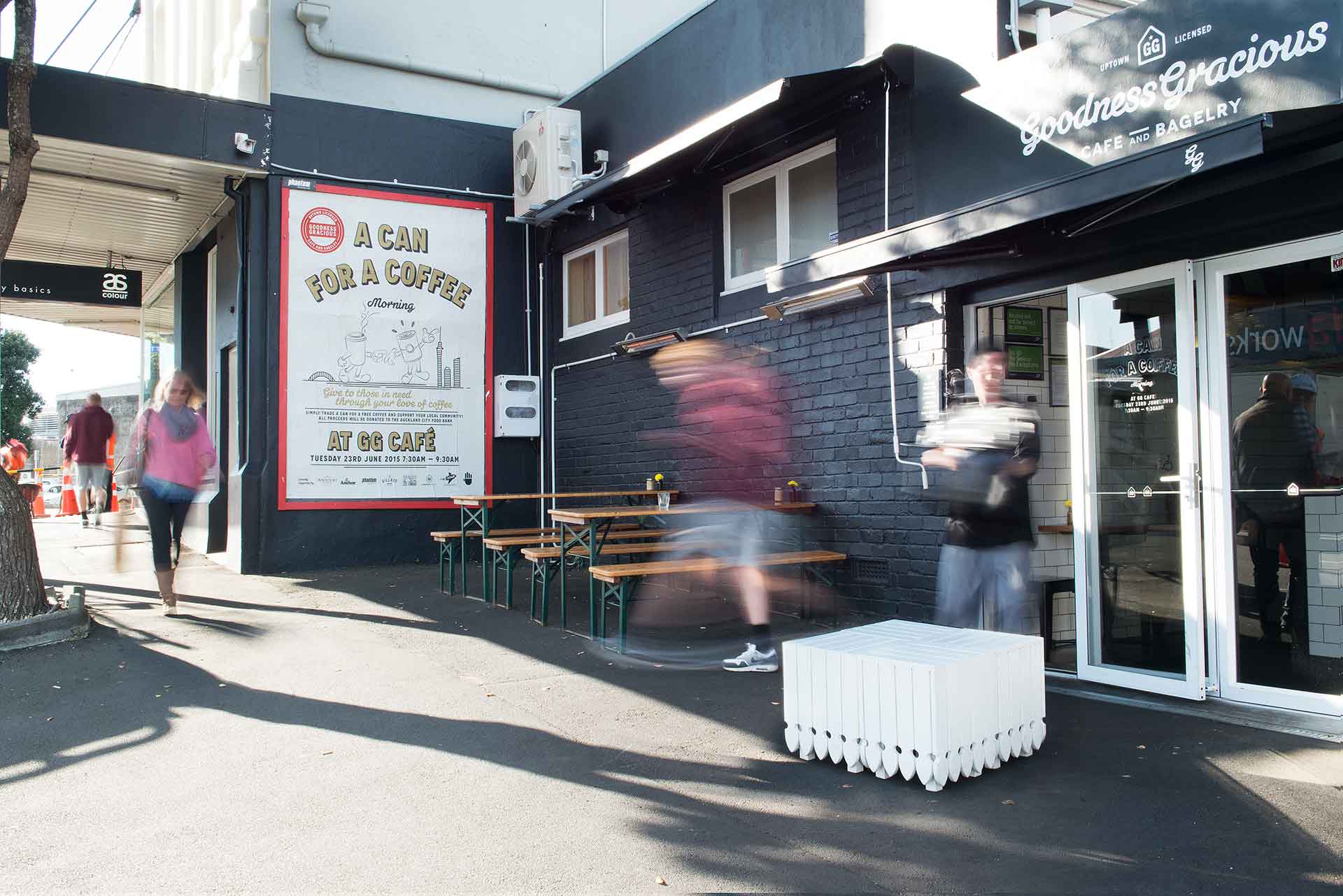
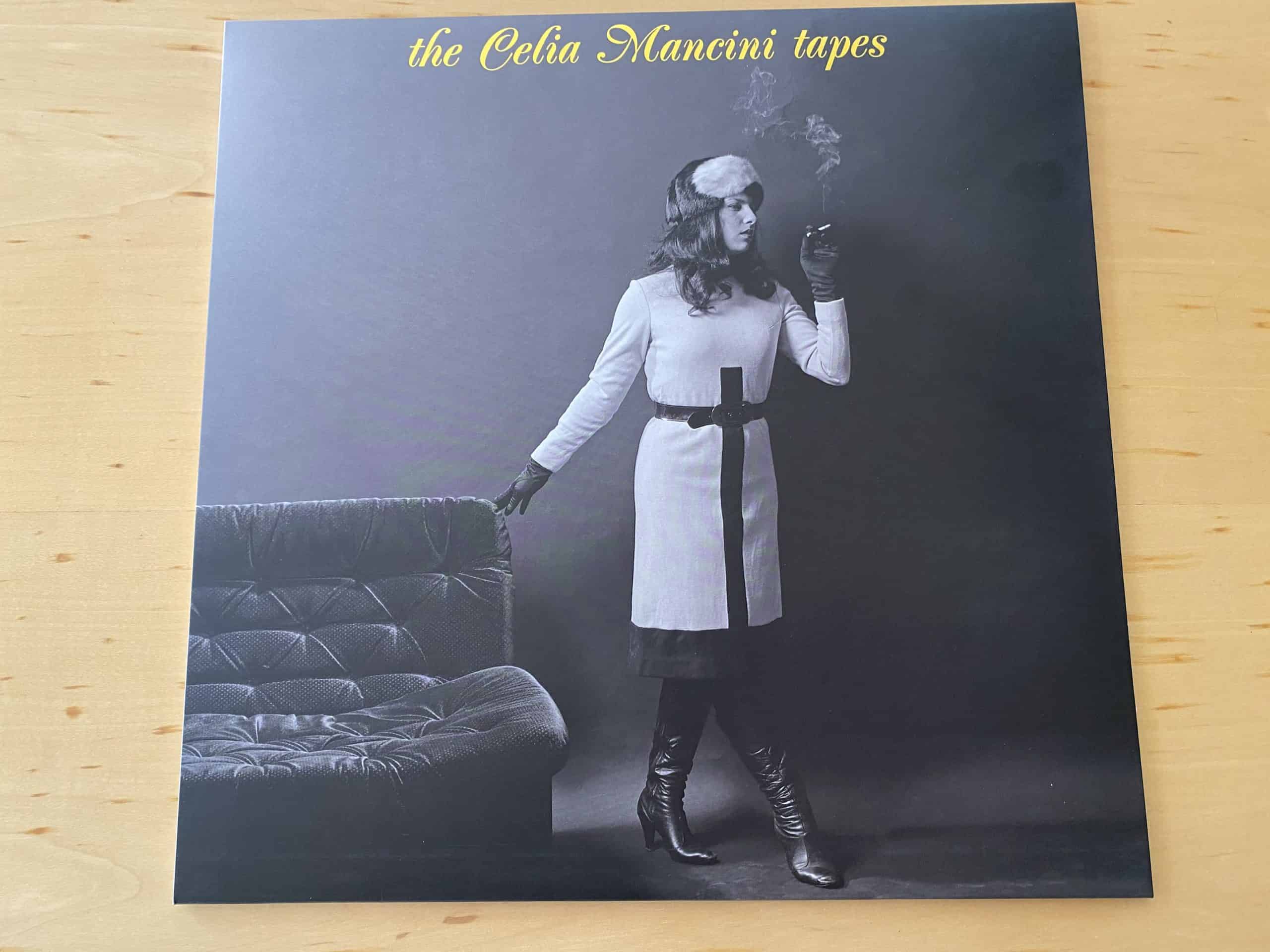

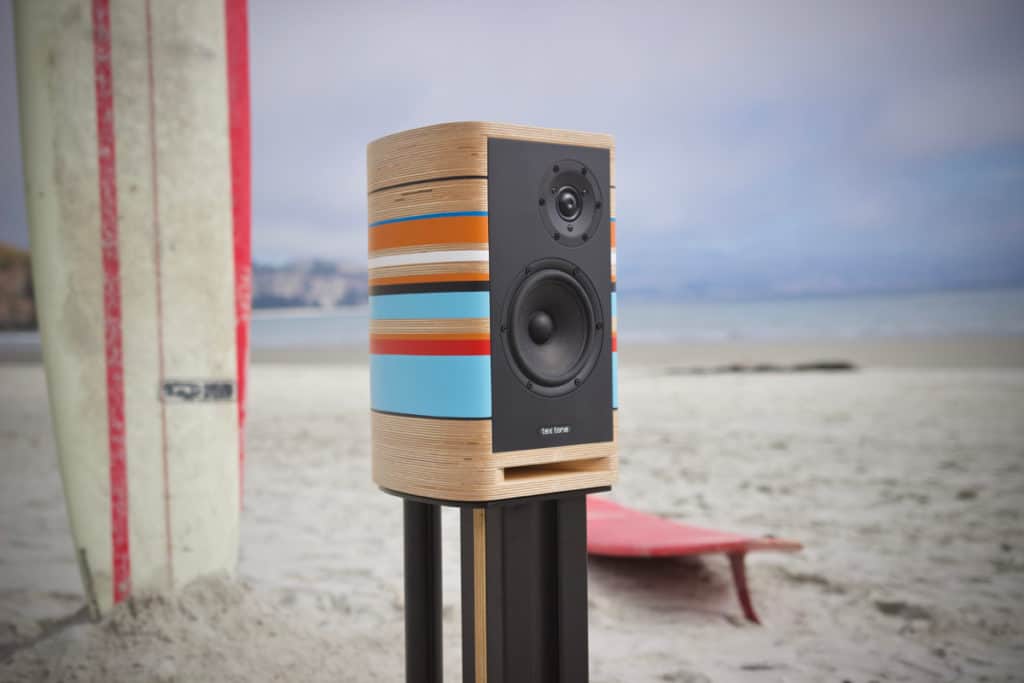
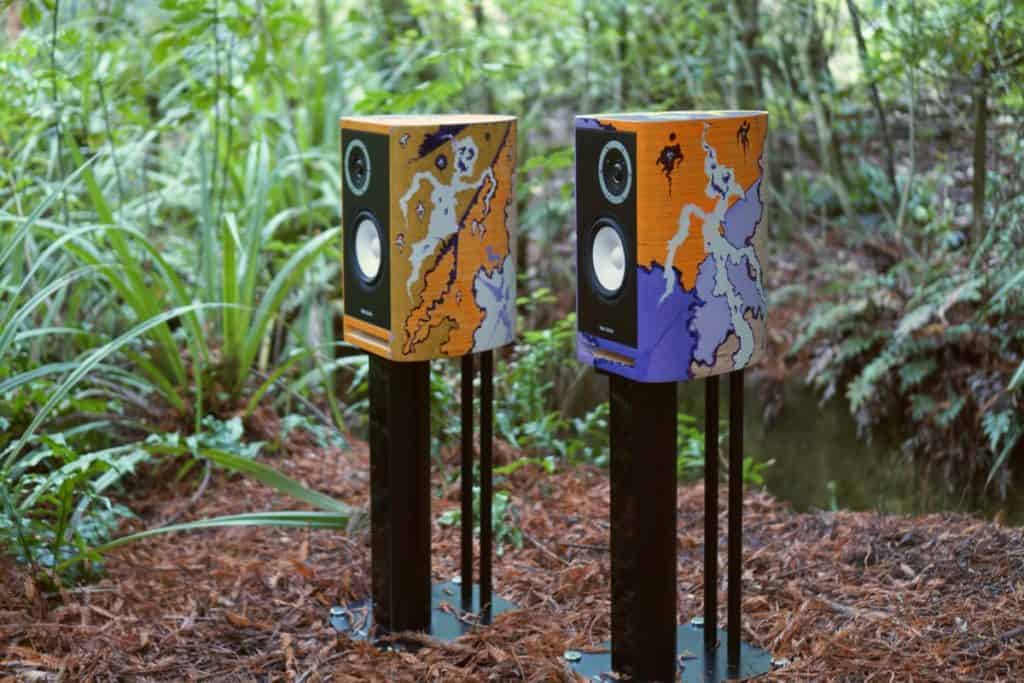
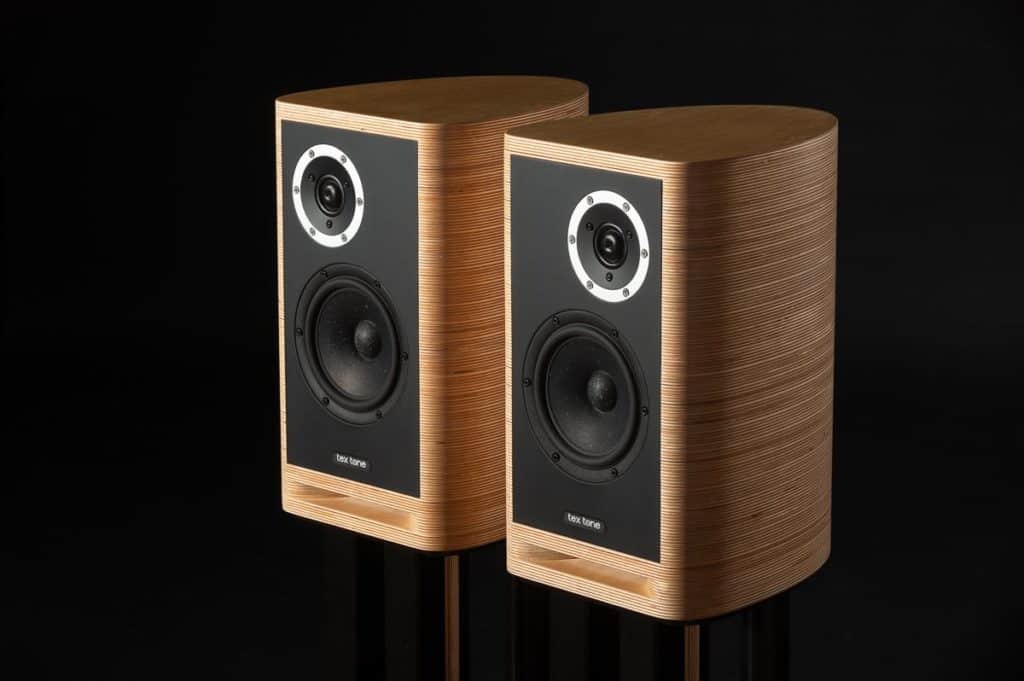
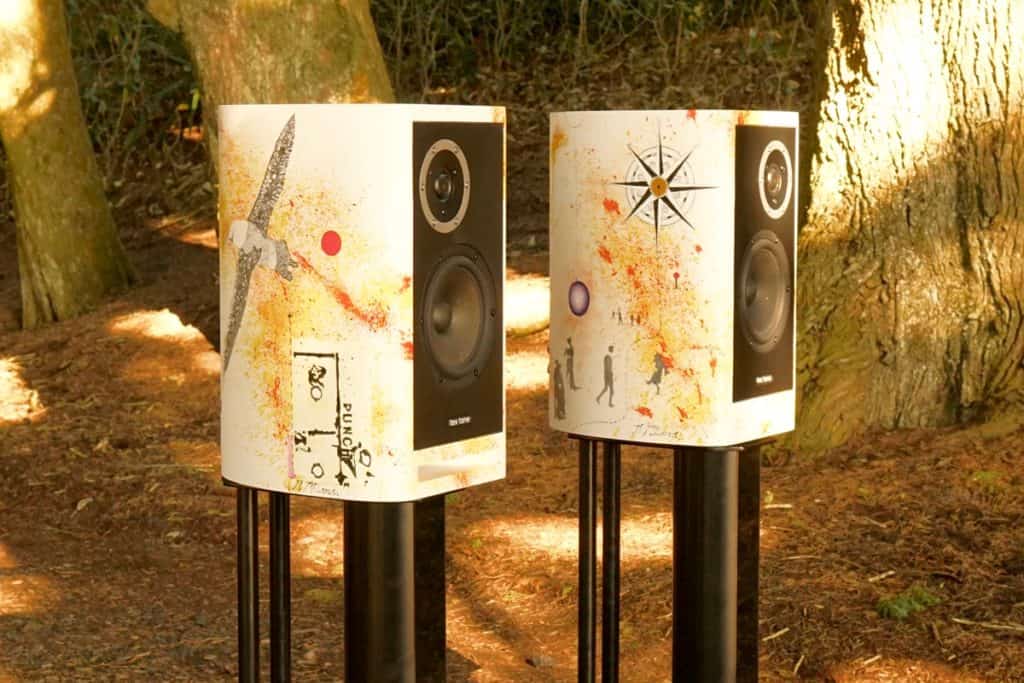
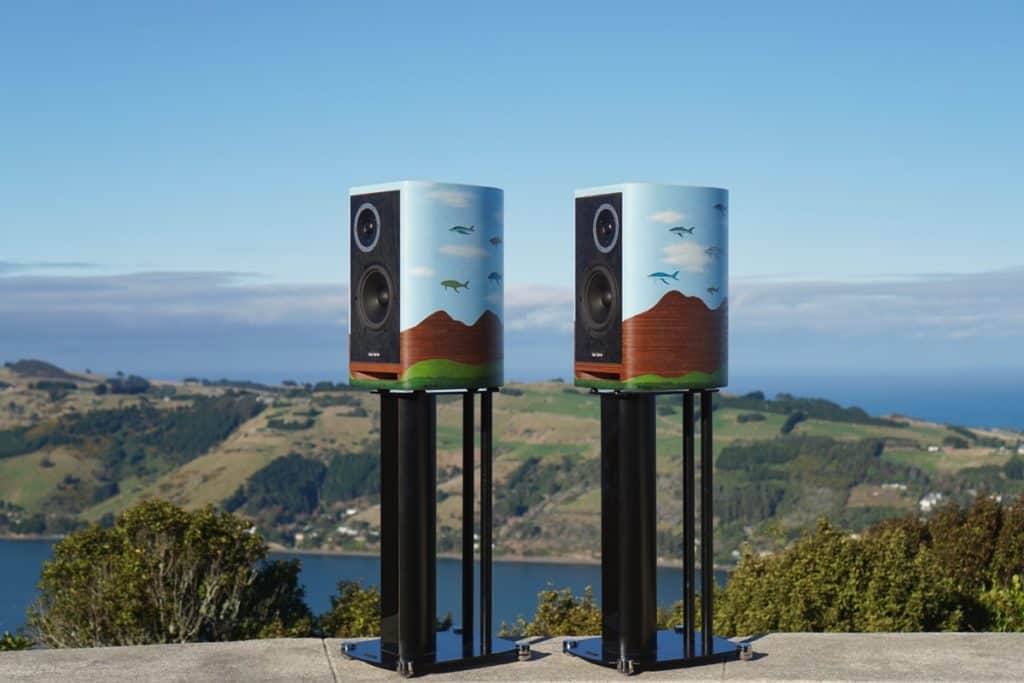
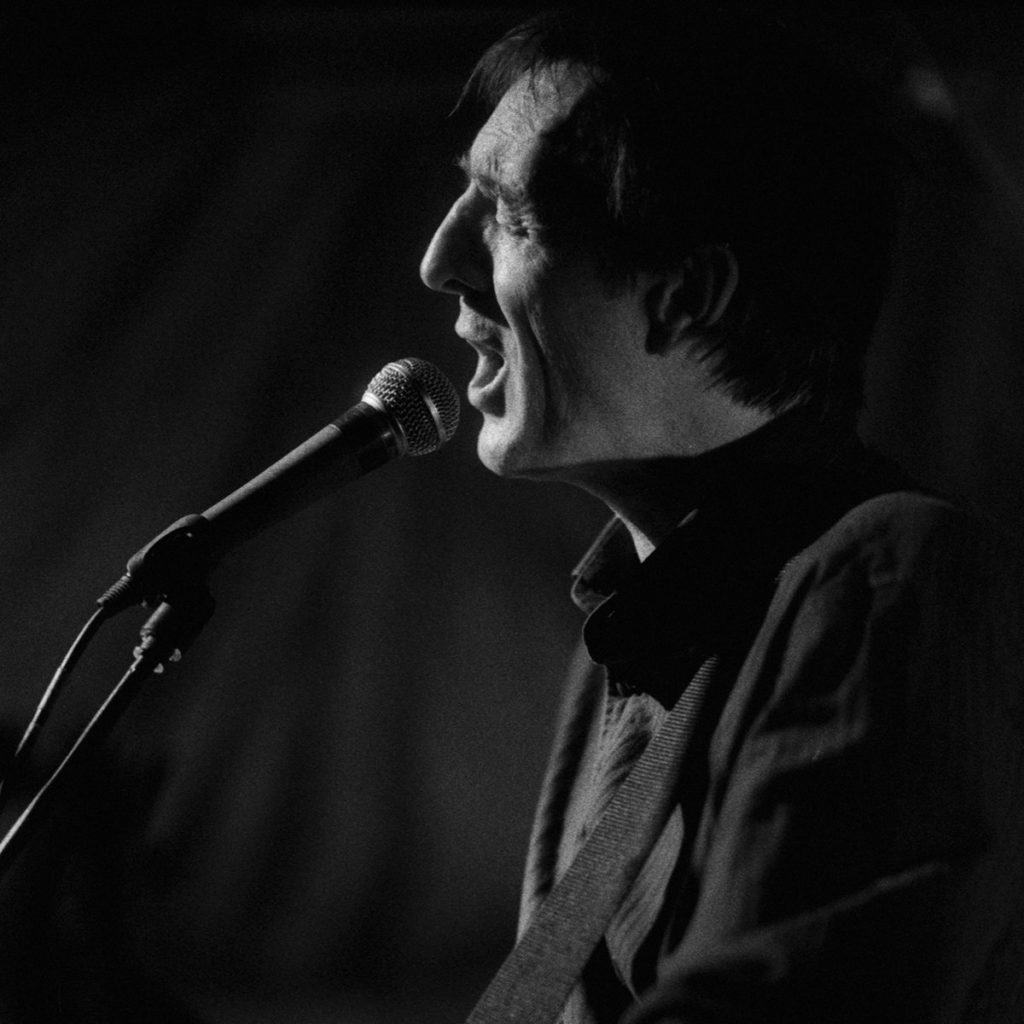
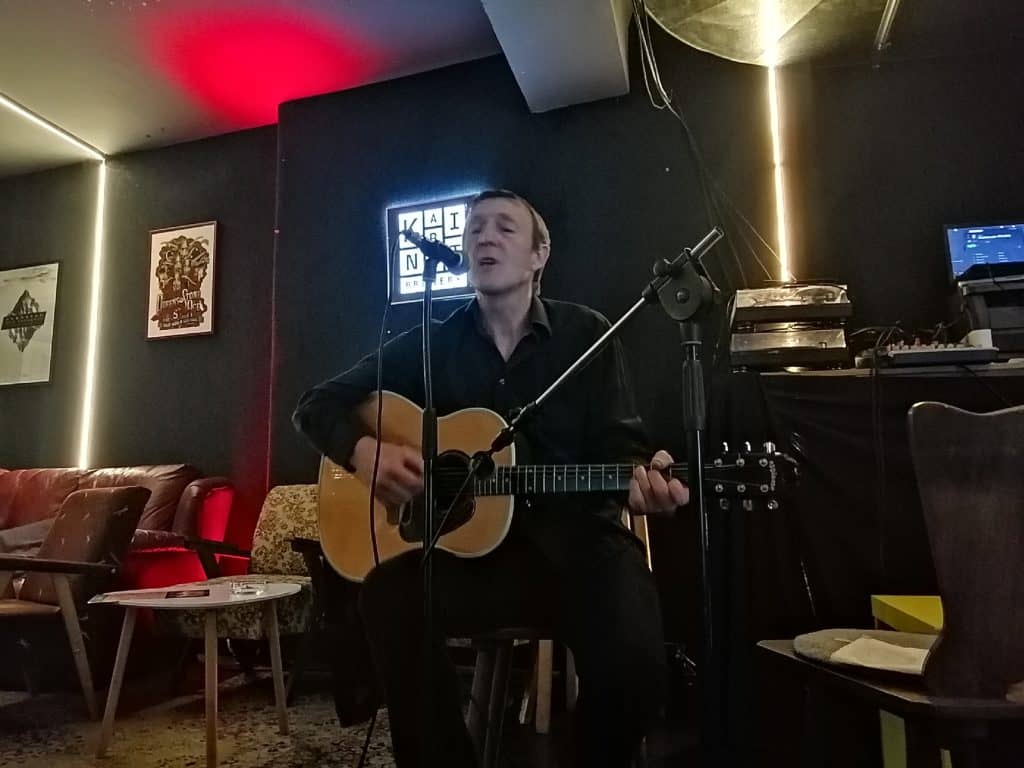
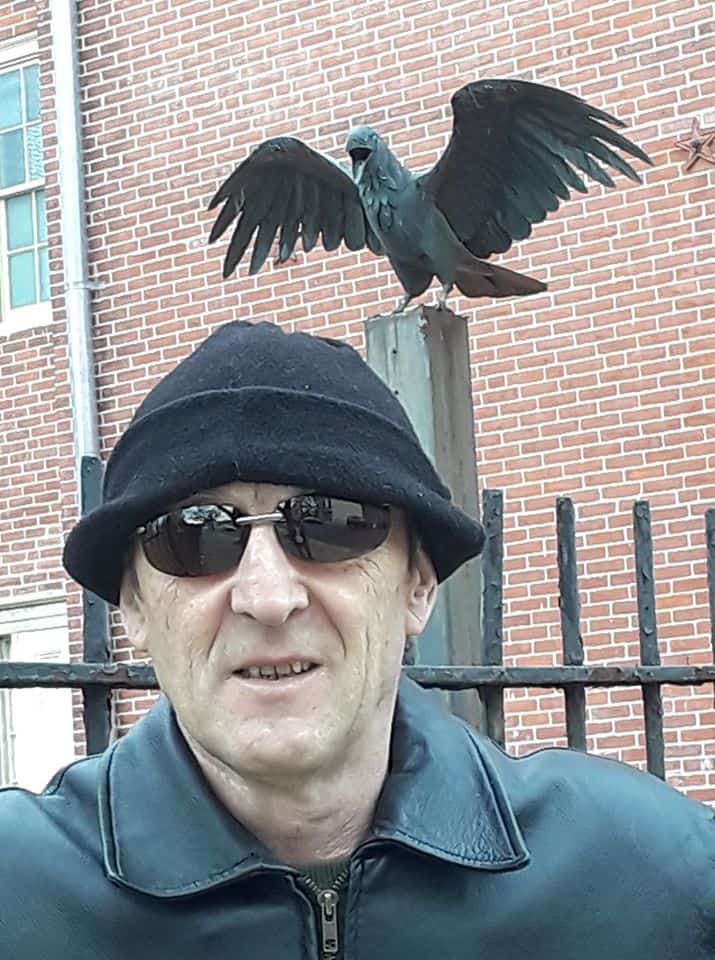
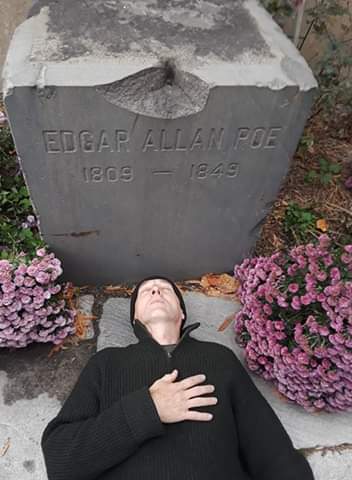
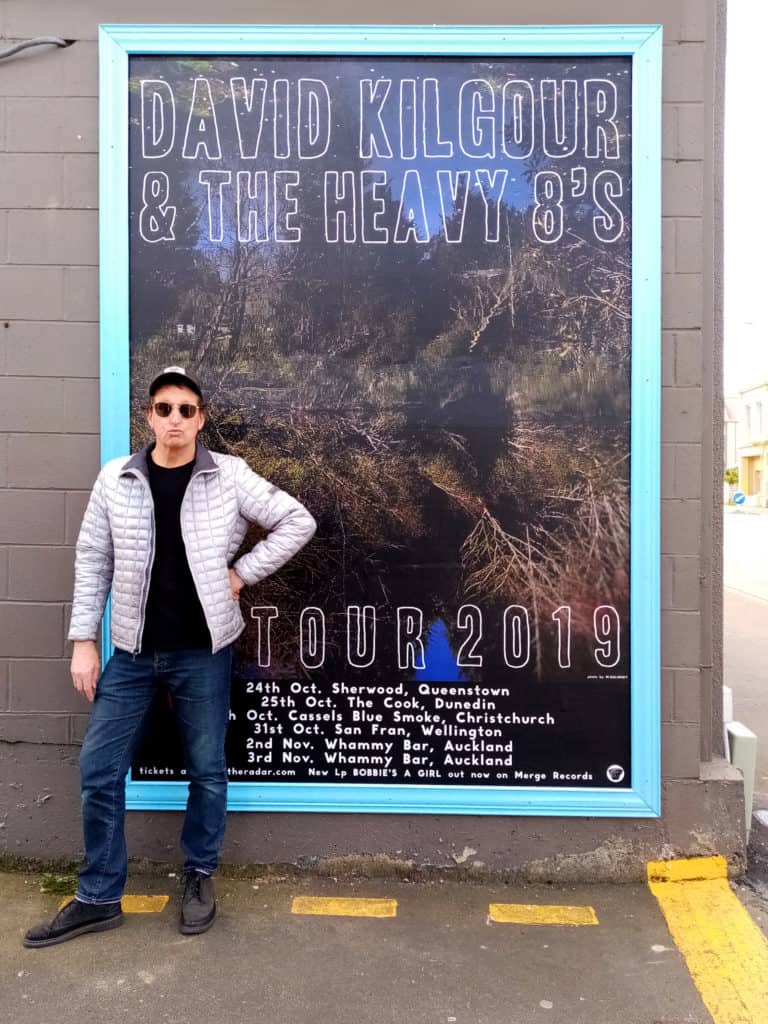
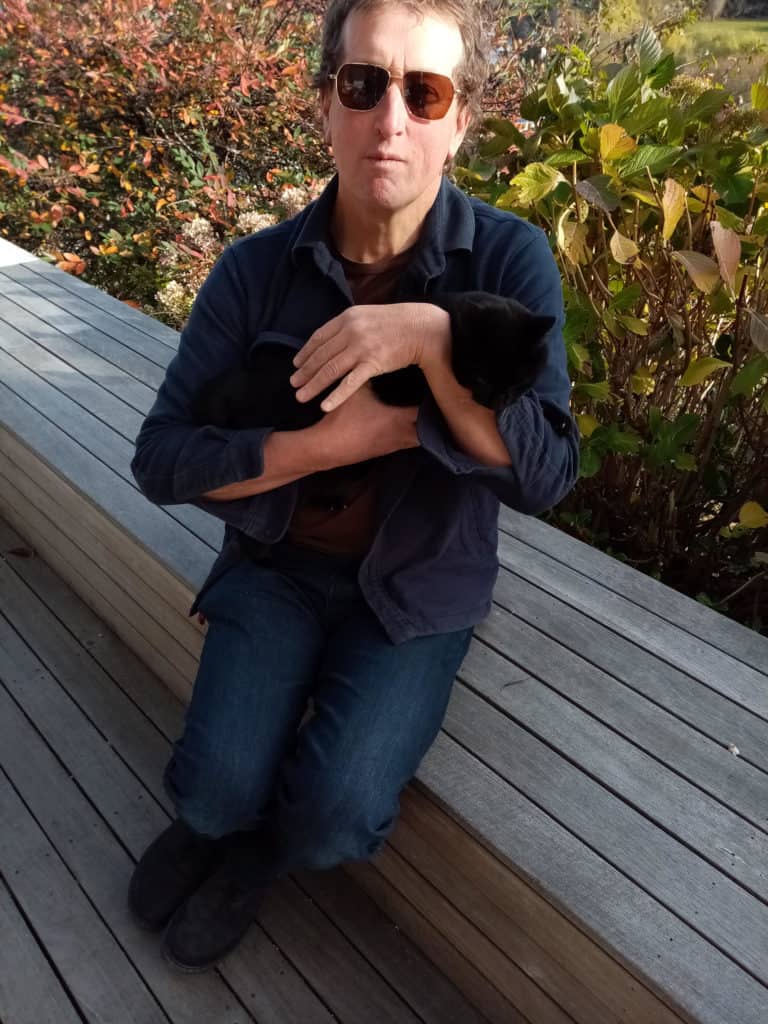
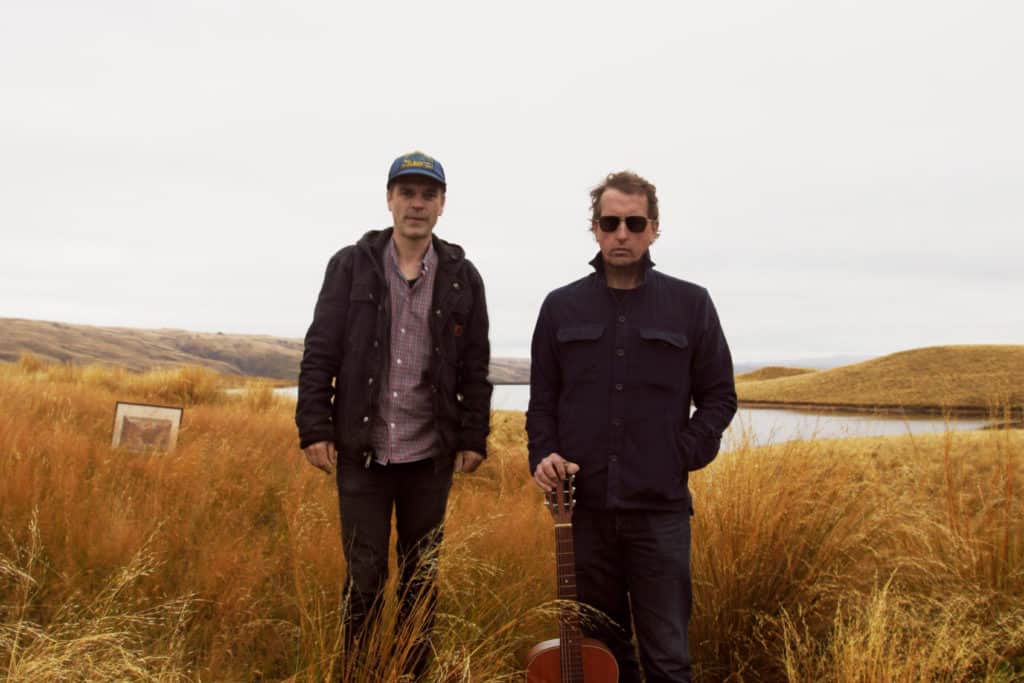
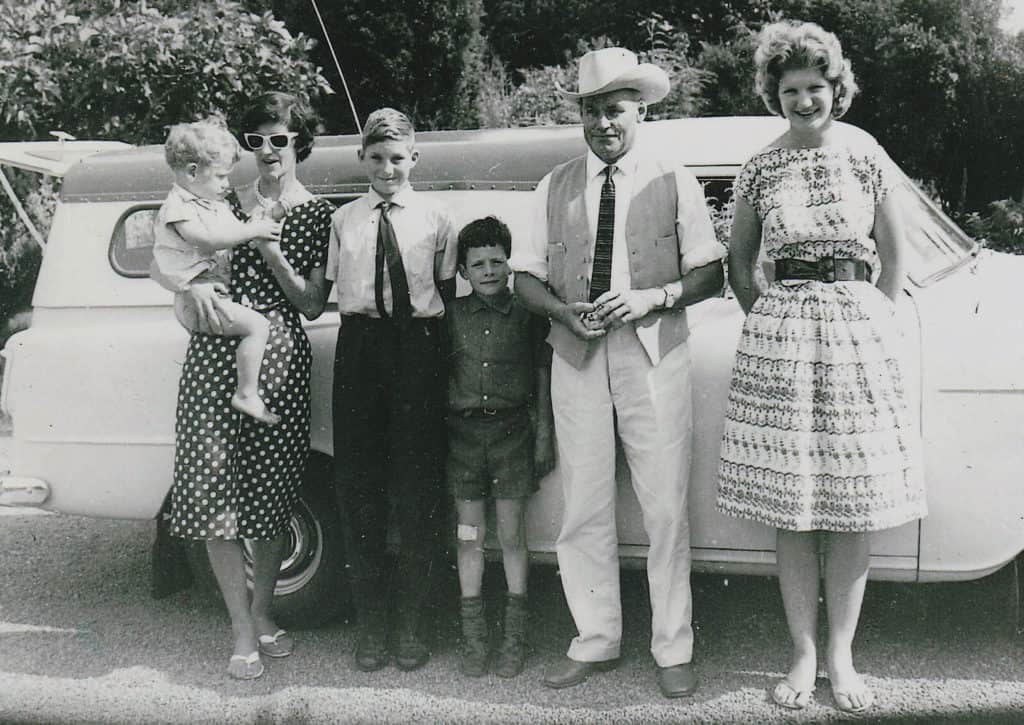
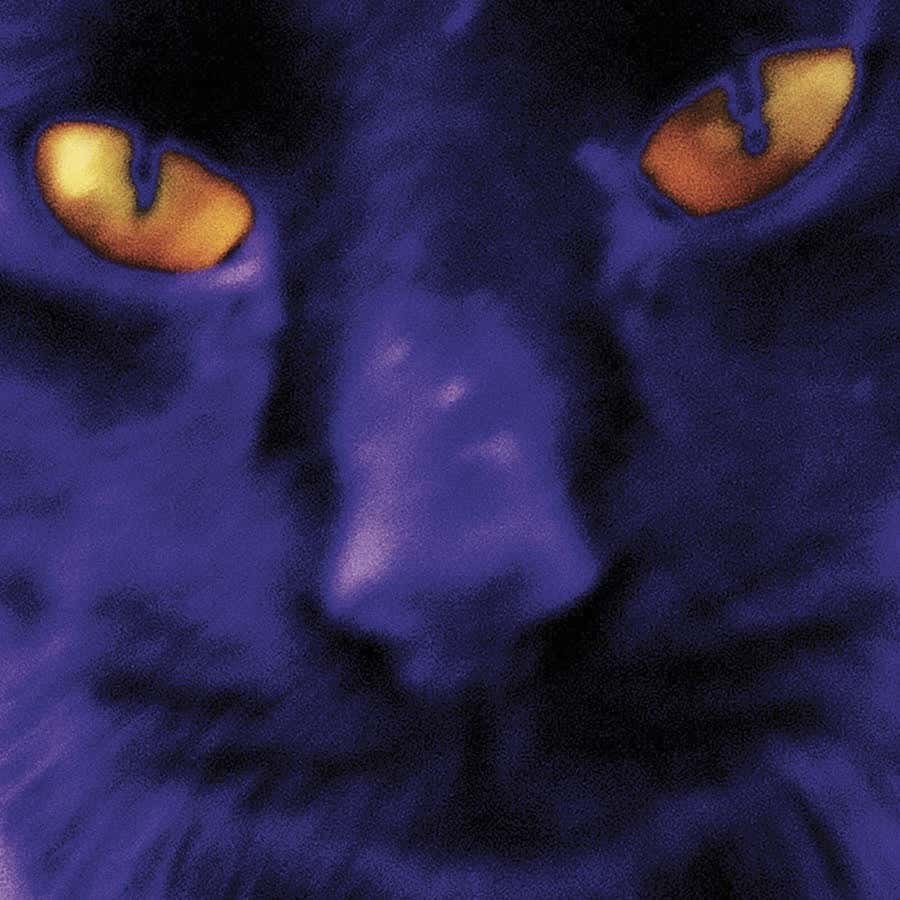
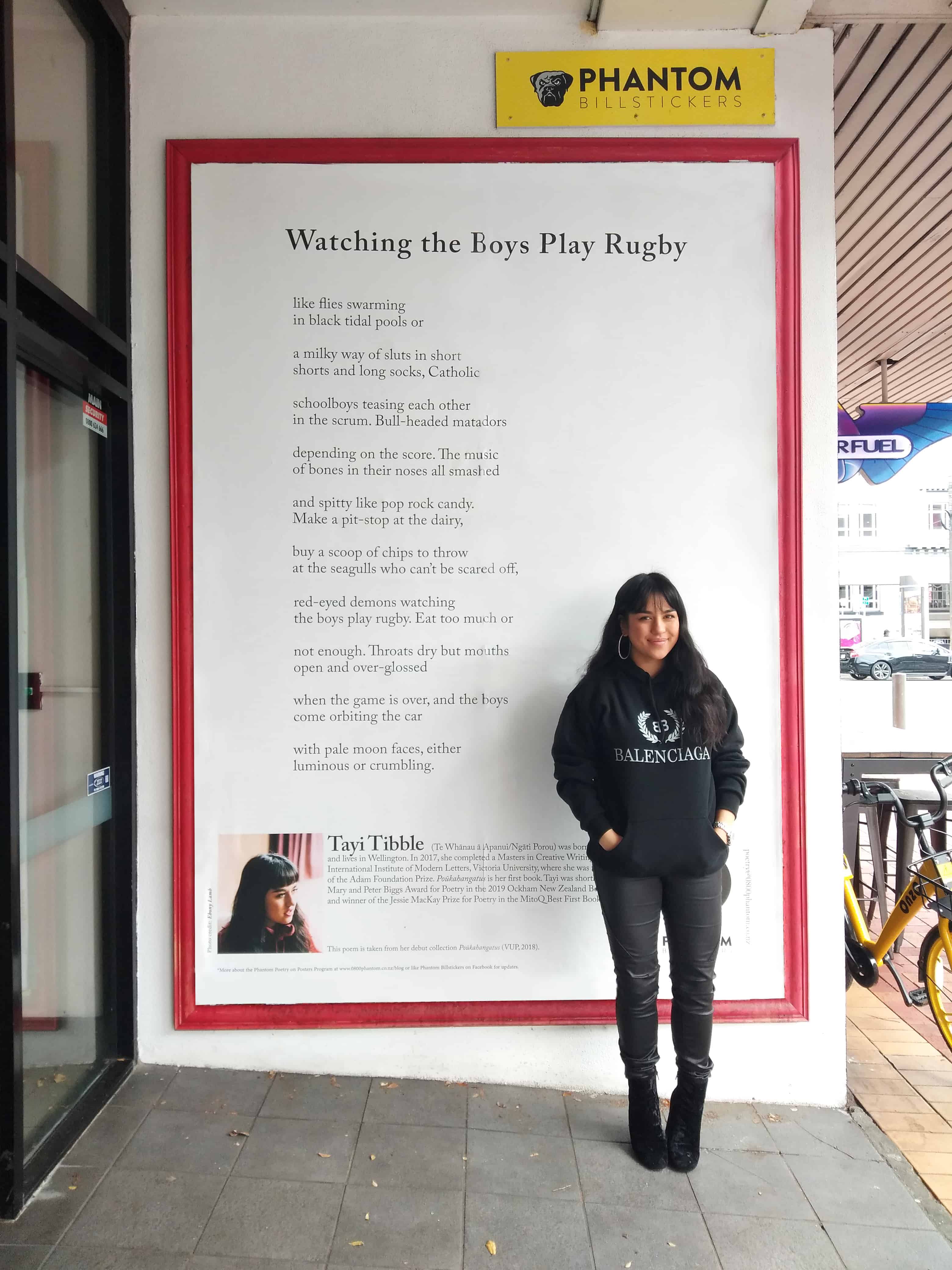
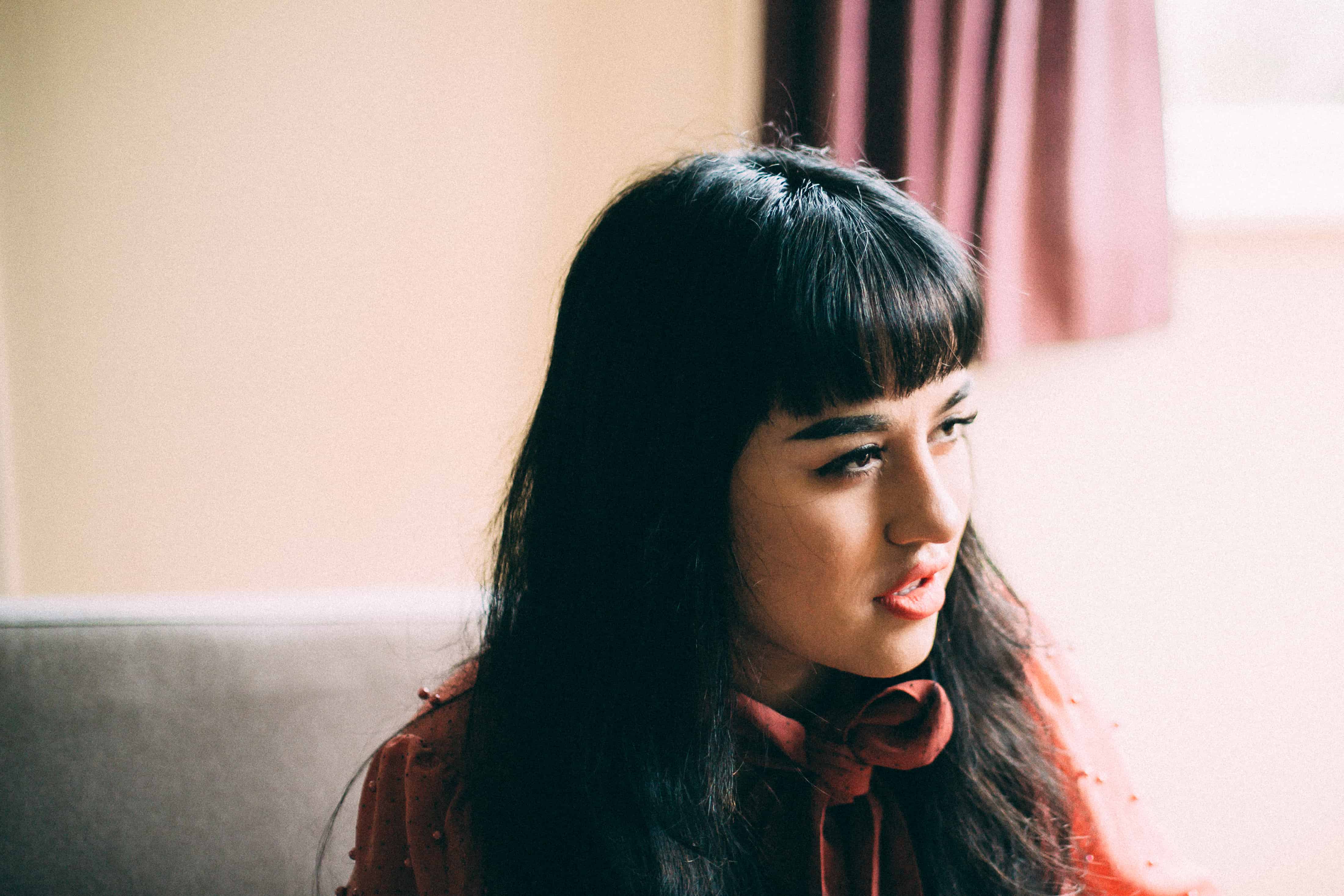
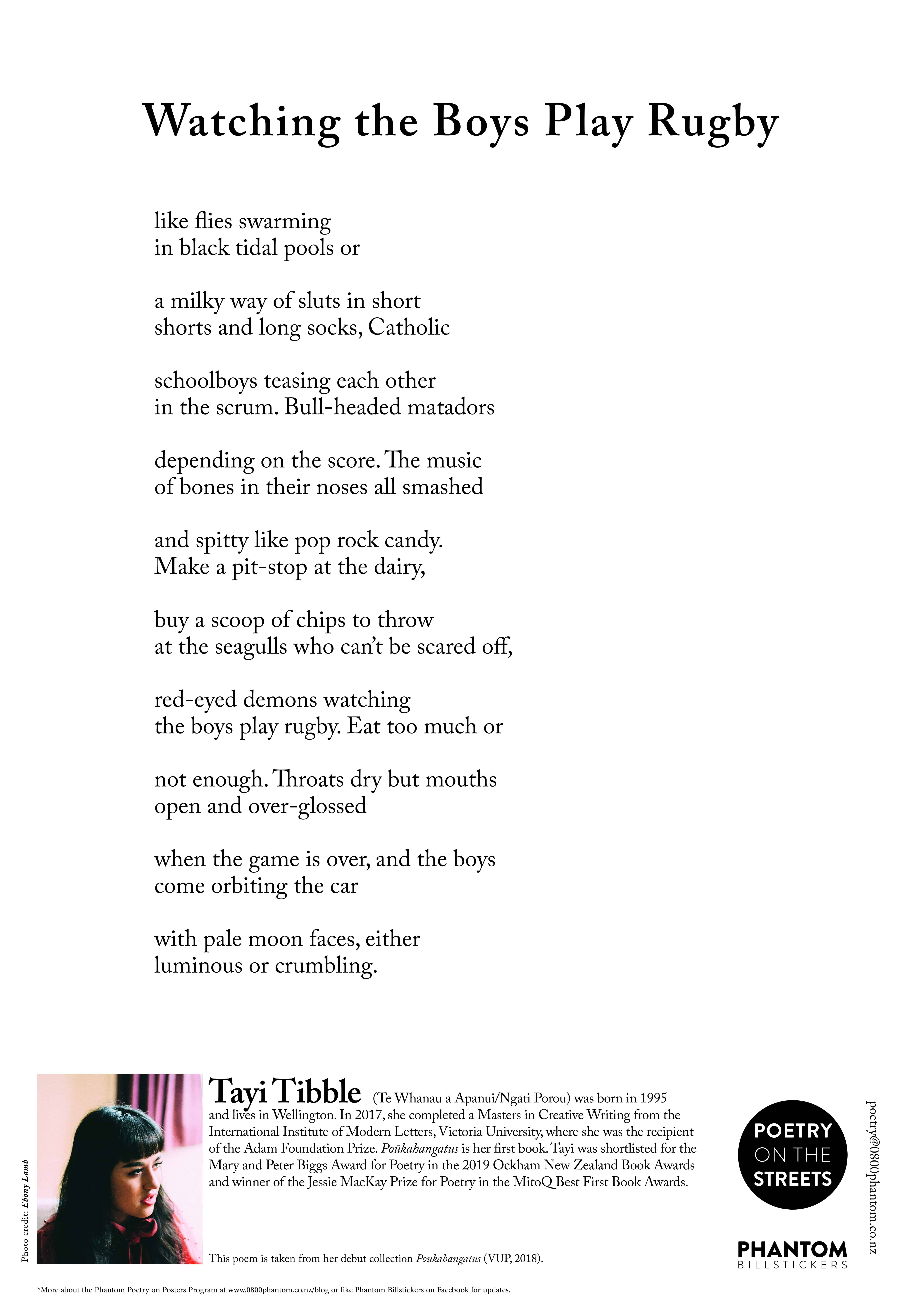
Recent Comments